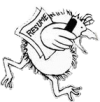Blog
Knowing job interview question styles will give you the edge in an interview. When preparing for a job interview do you know the styles of questions you are likely to be asked at interview? Knowing question styles and how to structure your answer, will make it easier for you to stay on topic and answer the question you have been asked. Using traditional preparation techniques, such as focussing on what you are likely to be asked, information you want to give and questions you want to ask the interviewer is a very useful foundation. However, failing to know and use job interview question styles means you are missing an important part of your preparation process. While employers still ask direct questions, the trend has been to ask more behavioural, and scenario style questions. The emerging trend is also include role plays as part of the job interview process.
Here are some tips to identify and how to respond to different styles of questions:
Direct Questions commonly start with;
- How would you deal with or approach a particular situation?
- What strategies would you use to resolve an issue or situation?
Example How would you deal with several reports due to complete at the same time? Structure
- Start with an overview - set the scene about what you are going to discuss
- Next talk about how you would approach the situation - that is your thinking process. How you make decisions.
- Finally give an example from your experience of how you have actually put it into practice. This is your proof of experience.
Behavioural questions commonly start with;
- Tell me about a time you dealt with a particular situation or issue
- Describe or discuss a time you managed a particular situation or issue
Example Describe a time you had several reports to complete at the same time What did you do? The best way to respond to this style of question is to use the STAR approach; Situation Use your example to give an overview of the situation including your role. Task Explain what needs to be done almost like a to do list. Action Describe how you did it - the actual steps you took to resolve or deal with it. Result Briefly describe the result and if applicable what you learnt from the experience and whether that knowledge changed how you would approach a similar situation. Scenario questionscommonly start with;
- You are given a story about a situation which may have a series of issues you need to deal with. This type of question may be given in writing or just be asked at interview.
ExampleYou are a Personal Assistant to the Managing Director of a medium size company. The MD has a number of meetings outside the office and has given you strict instructions not to be disturbed and everything can wait until tomorrow. You suddenly receive an urgent phone call from an important customer complaining about faulty goods and threatening to cancel all future orders if the MD does not ring back shortly. How will you deal with the situation?
- Start by providing a summary of your understanding of the situation.
- Discuss your options given the circumstances and the information you currently have,
- Describe the actions you would take in order of priority including the reasons for your actions.
Role Plays
- You are normally given a situation and the roles the interviewer and you will be playing. The purpose is to assess how you deal with a situation that you have not had time to consider. These roles are usually common situations that you will deal with in your position.
- It is not intended as a trick situation
Example You are being interviewed for a customer service role and the interviewer tells you that part of the interview is a role play. They will be a dissatisfied customer returning what they consider to be faulty goods and want a refund. Your role is resolve the complaint, while retaining a positive relationship with the customer. Don't panic. This is a situation you have dealt with many times before. The most logical approach is to do the role play in the same way you do it at work. The interviewer just wants to see how you deal with a common but unexpected situation. Remember using an appropriate structure for different styles of questions, will provide you with a framework to stay on topic and give you the confidence to answer the question you have actually been asked. Please feel free to make comments and share your experiences.
© 2024 Impressive Interviews. All Rights Reserved.

